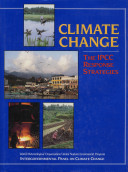Defining "Uncertainty"
‘Uncertainty’ is a complex and multifaceted property, sometimes originating in a lack of information, and at other times from quite fundamental disagreements about what is known or even knowable (Moss and Schneider, 2000). Furthermore, scientists often disagree about the best or most appropriate way to characterize these uncertainties: some can be quantified easily while others cannot. Moreover, appropriate characterization is dependent on the intended use of the information and the particular needs of that user community.
Scientific uncertainty can be partitioned in various ways, in which the details of the partitioning usually depend on the context. For instance, the process and classifications used for evaluating observational uncertainty in climate science is not the same as that employed to evaluate projections of future change. Uncertainty in measured quantities can arise from a range of sources, such as statistical variation, variability, inherent randomness, inhomogeneity, approximation, subjective judgement, and linguistic imprecision (Morgan et al., 1990), or from calibration methodologies, instrumental bias or instrumental limitations (JCGM, 2008).
Notes:
From the IPCC report. Interesting for including different definitions of terms in its description.
Folksonomies: uncertainty definitions
Taxonomies:
/science (0.535773)
/technology and computing/hardware/computer components/disks (0.527367)
/science/mathematics/statistics (0.445888)
Keywords:
Scientific uncertainty (0.934027 (neutral:0.000000)), IPCC report (0.871454 (neutral:0.000000)), multifaceted property (0.850352 (positive:0.530457)), linguistic imprecision (0.807856 (negative:-0.358385)), different definitions (0.807597 (positive:0.535159)), appropriate way (0.804319 (positive:0.346910)), (Moss (0.797272 (negative:-0.520442)), instrumental bias (0.782692 (negative:-0.441978)), measured quantities (0.780035 (positive:0.564809)), inherent randomness (0.773570 (negative:-0.346709)), particular needs (0.749794 (neutral:0.000000)), calibration methodologies (0.749503 (neutral:0.000000)), various ways (0.749438 (neutral:0.000000)), user community (0.749007 (neutral:0.000000)), statistical variation (0.741382 (neutral:0.000000)), future change (0.740740 (neutral:0.000000)), climate science (0.737837 (negative:-0.351920)), information (0.528073 (negative:-0.565279)), disagreements (0.519672 (negative:-0.520442)), uncertainties (0.506537 (positive:0.346910)), instance (0.492012 (negative:-0.292481)), judgement (0.489788 (negative:-0.276365)), partitioning (0.487934 (positive:0.408188)), Schneider (0.487527 (neutral:0.000000)), lack (0.484013 (negative:-0.602972)), classifications (0.483422 (neutral:0.000000)), variability (0.480068 (neutral:0.000000)), limitations (0.479864 (negative:-0.549303)), characterization (0.478719 (negative:-0.527587)), projections (0.477214 (neutral:0.000000))
Entities:
IPCC:Organization (0.938388 (neutral:0.000000)), Schneider:Person (0.771178 (neutral:0.000000)), Morgan:Person (0.719601 (neutral:0.000000))
Concepts:
Scientific method (0.988988): dbpedia | freebase
Metrology (0.903087): dbpedia | freebase | opencyc
Uncertainty (0.865089): dbpedia | freebase | opencyc
Measurement (0.783565): dbpedia | freebase
By the Way (0.599362): dbpedia | freebase | yago
Physics (0.546222): dbpedia | freebase | opencyc
Science (0.526690): dbpedia | freebase | opencyc
Controversy (0.497016): dbpedia | freebase





